Key takeaways:
- Fitness cryptocurrency rewards motivate individuals by turning workout achievements into digital tokens, fostering a sense of community and shared goals.
- Blockchain enhances healthcare data security by decentralizing information, making it more resistant to breaches and unauthorized access.
- Smart contracts on the blockchain automate access permissions, improving the efficiency of sharing medical records and enhancing patient care.
- Blockchain technology empowers patients with control over their medical history, offering secure and immediate access while alleviating concerns about data vulnerabilities.
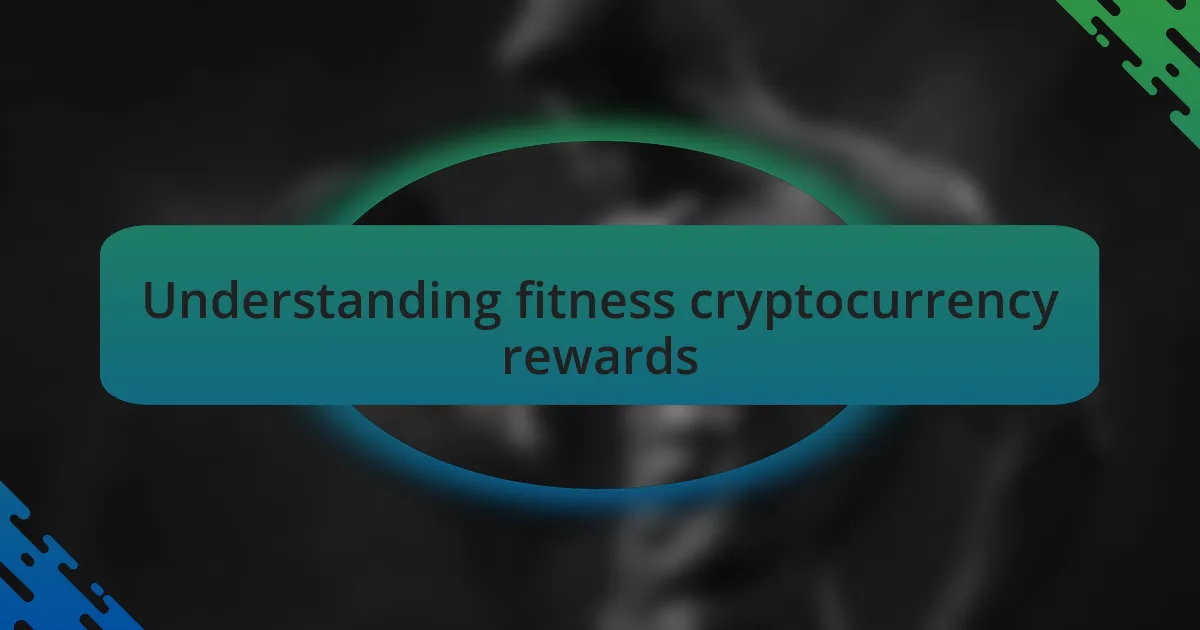
Understanding fitness cryptocurrency rewards
Fitness cryptocurrency rewards represent a thrilling intersection of health and technology. Imagine crushing your workout goals while simultaneously earning digital tokens. It’s not just a financial incentive; it’s a motivating push that transforms how I view my fitness journey. Doesn’t it feel empowering to know that your dedication could translate into tangible rewards?
When I first stumbled upon the idea of earning cryptocurrency for being active, I was skeptical. However, as I began tracking my workouts and seeing those tokens accumulate, I felt a sense of accomplishment beyond the usual endorphin high. Have you ever experienced that rush of motivation just from watching a progress bar fill? It’s incredible how a little gamification can lead to increased effort and focus, turning a routine into an engaging challenge.
The beauty of fitness cryptocurrency rewards lies in their potential to foster community. I found it incredibly moving to connect with others who share the same goals and are motivated by these rewards. Sharing achievements and building alliances made my fitness journey not just personal but also social. How amazing is it to be part of a movement that aligns health with innovation? It feels like we’re not just exercising for ourselves but for something greater.
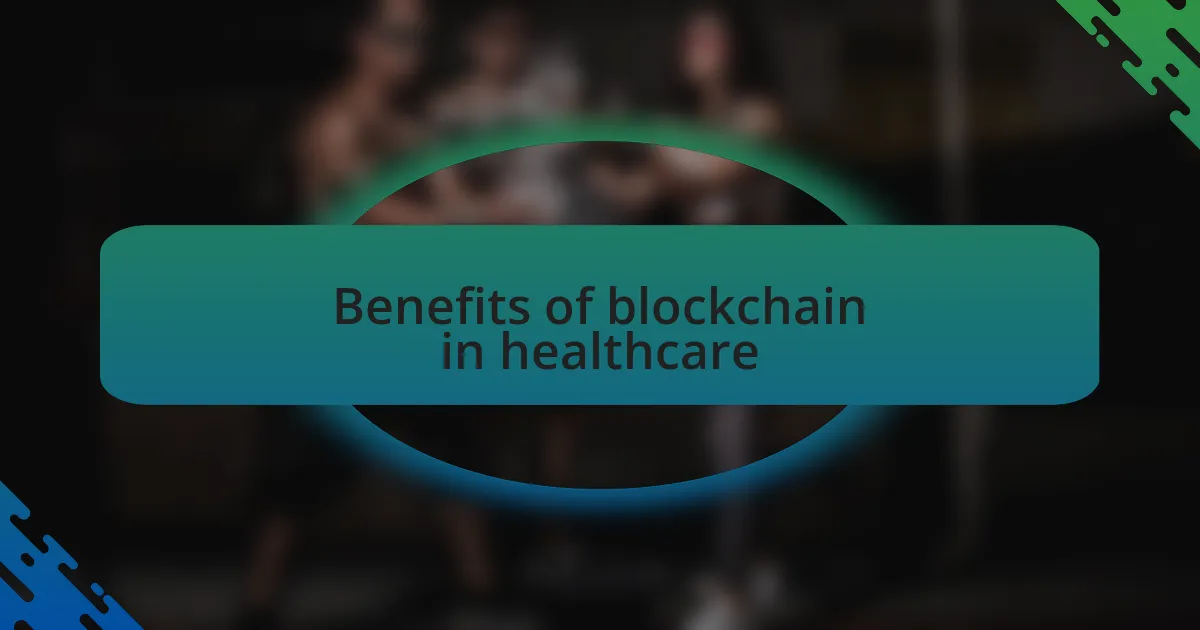
Benefits of blockchain in healthcare
One of the most significant benefits of blockchain in healthcare is that it enhances data security. By leveraging decentralized networks, sensitive medical information becomes significantly more protected from hacking attempts. I remember how uneasy I felt learning about data breaches in hospitals; understanding that blockchain could safeguard this information provides me with a sense of relief. Isn’t it reassuring to think that your health records could be safe from unauthorized access?
Another advantage lies in the transparency and traceability provided by blockchain. Every transaction made on a blockchain is recorded and can be audited, which is vital for maintaining trust in healthcare systems. I once had to track down a medical prescription that seemed lost in the shuffle. Imagine how much easier that would have been if every step could be traced on a transparent ledger. Wouldn’t you appreciate knowing where your health data is at all times?
Finally, blockchain can streamline patient consent processes. Instead of cumbersome paperwork that can be easily misplaced, blockchain allows for clear, immutable records regarding who has access to your medical information. As someone who has navigated the complexities of sharing medical history, I find this prospect liberating. Doesn’t it sound empowering to have control over your own medical narrative in such a direct way?
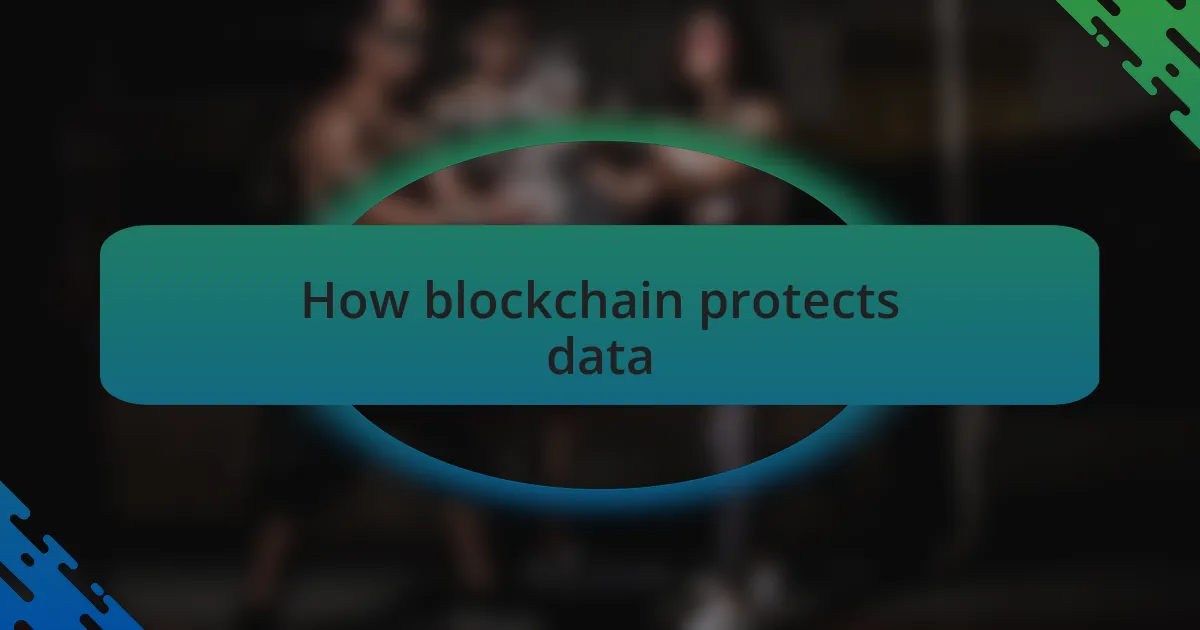
How blockchain protects data
When it comes to protecting data, blockchain’s decentralized nature is its strongest feature. Unlike traditional databases, where a single point of failure can lead to breaches, blockchain disperses information across a network of nodes. I remember the anxiety I felt after hearing about a massive data breach that compromised countless medical records; knowing that blockchain could distribute data and mitigate these risks offers significant peace of mind. Isn’t it comforting to know that your sensitive health information won’t be held hostage at a single vulnerability?
Additionally, each transaction on a blockchain is cryptographically secured, making unauthorized alterations practically impossible. This aspect reminds me of my first experience with encryption during a college project; there was something fascinating about how it could protect information. In healthcare, this means each health record changes hands securely, creating a trust layer. Wouldn’t you feel more at ease knowing your data is fortified with advanced technology that makes it resilient against tampering?
Moreover, the use of smart contracts on the blockchain can automate access permissions, ensuring that only authorized parties can view specific medical data. I recall a frustrating encounter when a pharmacy refused to fill a prescription because the system was down; having a blockchain-based solution could have streamlined that process completely. Thinking about how smart contracts can dispense data precisely when needed feels like a breakthrough that would enhance patient care, don’t you agree?
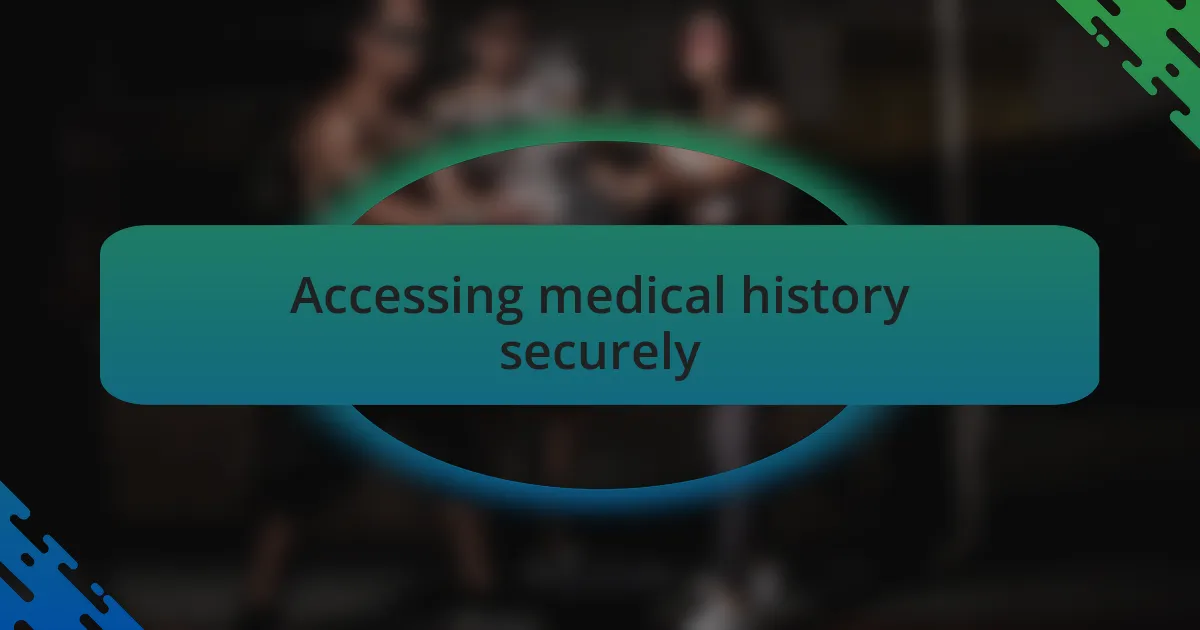
Accessing medical history securely
Accessing medical history securely through blockchain technology offers a level of reassurance I genuinely appreciate. The ability to control who accesses my health data has become increasingly important to me over the years. I’ve often worried about how open my records are and whether they could be accessed by unauthorized individuals—knowing that blockchain can offer precise access controls alleviates those concerns and makes me feel empowered regarding my own information.
I remember a time when my doctor needed immediate access to my medical history, but traditional systems were slow and cumbersome. If blockchain had been in use then, the process would have been seamless. It’s remarkable how the combination of encrypted records and decentralized storage can prevent delays while providing instant, secure access. Can you imagine how that could transform the patient experience?
Every time I think about the implications of blockchain in healthcare, I feel a mix of excitement and hope. It feels as though we’re on the brink of a revolution where patients gain not only access to their medical history but also ownership of it. Isn’t it empowering to think that our health information, a vital part of who we are, could be secured and shared on our own terms?
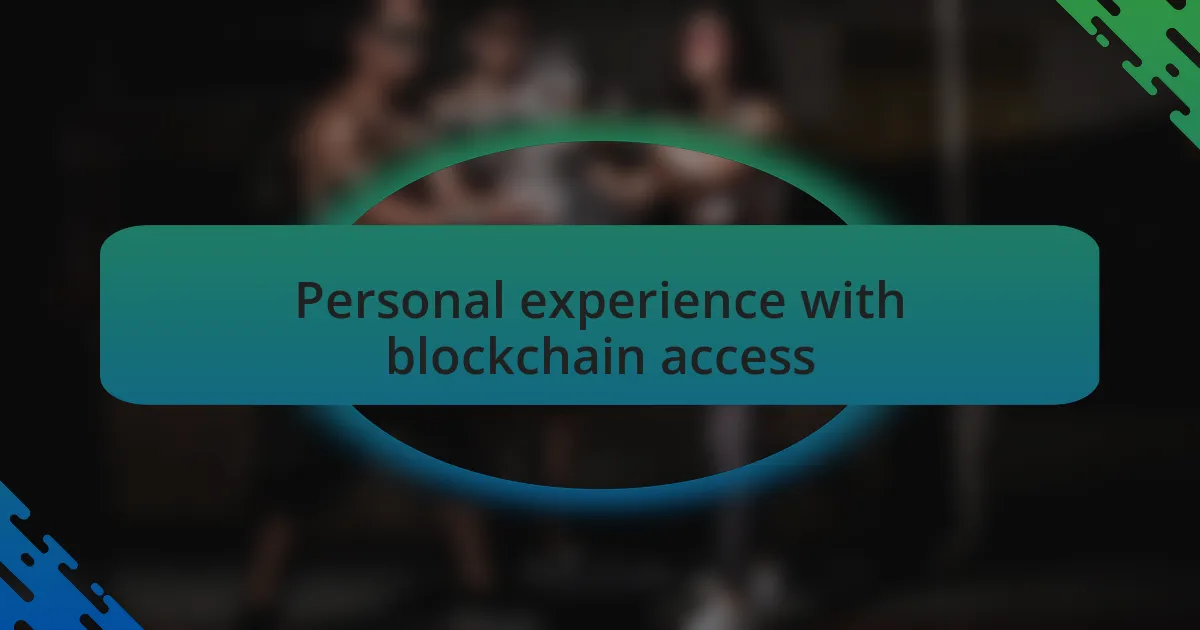
Personal experience with blockchain access
Navigating my personal healthcare has always felt like a maze, but my experience with blockchain access has turned the complex into something manageable. I recall a recent situation where I needed to share my medical history with a specialist for a second opinion. Instead of the usual back-and-forth calls and paperwork, I simply logged into a blockchain platform, verified my identity, and granted access within minutes. It was liberating to control who sees what and when!
There’s something powerful about knowing my medical data isn’t just sitting in a vulnerable database. When I first explored blockchain technology for my records, I felt a wave of relief wash over me. It’s as if I finally had the key to my own health narrative. What’s more, the knowledge that my information can’t be tampered with is reassuring—I no longer feel like I’m at the mercy of outdated systems. How often do we take for granted the very information that determines our health?
I remember discussing blockchain technology with a like-minded friend who shared my enthusiasm. We marveled at how this innovation could mean the difference between a frustrating wait for records and immediate access that could inform critical health decisions. The thought of being empowered through technology makes me hopeful for the future, where my medical history is not just data but a part of my identity that I securely manage. Isn’t it exciting to think we are stepping into an era where patience, ownership, and security go hand in hand?